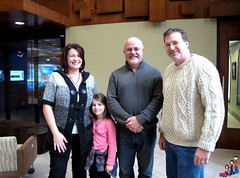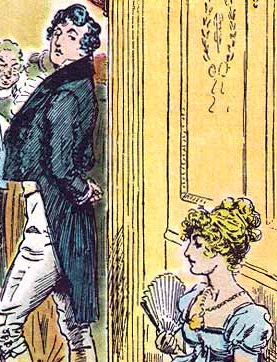 |
| Jean's first book, second edition |
I know what this New Year will bring.
- There will be new experiences to fit into old categories.
- There will be unexpected opportunities to weigh and, perhaps, to grasp.
- There will be disappointments, insights, understandings, and misunderstandings.
- There will be health changes, for better or for worse.
- There will be marriages in the New Year. There will be births.
- There will be plans to visit exciting places.
- There will be new books to read, new recipes to try, and new plantings for the garden.
- There will be new people to meet.
- There will be old friendships treasured in new ways.
- There will be surprises.
- There will be separations and estrangements, to take hold or to heal.
- There will be losses, and there will be gains.
- There will be new stories and songs composed and shared.
- There will be secrets. There will be dangers.
- There will be hard sacrifices that face us.
- There will be good news and there will be bad news (per A Tale of Two Cities).
What significant or deeply
meaningful experiences will be ours in the New Year? Will we be tired of the year before
the Ides of March or April 15? What will we work to make happen through the time and opportunity given to us?
Given the things we know, there is anticipation that comes with every New Year's Eve and the changing of the clock to 12:01 a.m. Excitement resides in a sense of a fresh start. Its heartbeat is the promise of good as-yet-unknown events. We await pending hopes to form anew, to rearrange themselves, or for us to rearrange, to build, and to take forward. We want to use what is in our hands for creativity and completion.
Given the things we know, there is anticipation that comes with every New Year's Eve and the changing of the clock to 12:01 a.m. Excitement resides in a sense of a fresh start. Its heartbeat is the promise of good as-yet-unknown events. We await pending hopes to form anew, to rearrange themselves, or for us to rearrange, to build, and to take forward. We want to use what is in our hands for creativity and completion.
That is to say that the underlying mysteries of the New Year dwell in the details of the specific and fresh hows,
whens, whats, whos, and whys of your story and mine.
Neither you nor I can give those kinds of details about what our respective and highly
personal New Year days will promise or bring to us. We know there will be new days, but what, exactly, will they be? What meaning might they hold for us? How few or many might they be?
We take with us, into the
New Year, some "Why?!" questions that continue to baffle or to plague us.
The meaning in the New Year resides in the mysteries of love, respect, and people. The numberless and often unspoken desires and longings, hopes for change, and the other parts that affect our lives through others and the parts of our lives that can affect them.
The meaning in the New Year resides in the mysteries of love, respect, and people. The numberless and often unspoken desires and longings, hopes for change, and the other parts that affect our lives through others and the parts of our lives that can affect them.
For example, 18 years ago on New Year's Eve I had no way of knowing that a publisher would accept my memoir, in finished manuscript* form. And in the UK, something completely unforeseen. That is one personal example of work, study, and input from others, for feedback, finally reaching an important stage of completion. Can't that happen again for me and again for you? Are we still persevering in the New Year?
It is said that the future is unknown. Yet, when we set goals or make
resolutions for a New year, we are trying to carve out a promising,
better year than we experienced in the previous year. And, we already see the ability to identify the kinds of
things we will experience in detail, more than I have given already.
Can't it also be said, "God is beyond Time, yet, he is the God of the new"? "Behold," he has said, "I am making all things new" (Revelation 21.5). God's plan was, is, and will be realized. Regardless. Along with the mystery, the surprises, the hopes and the dreams...is that assurance. It is God, who is Timeless, assuring us by his unchanging Word that he was, is, and will be with us in our times, our calendar days down to each milli-second. Wherever we are, whatever we are doing, whatever we may think of ourselves..too high or too low...All-powerful God, the Creator who is Love, is near. Our challenge is to stay close to him due to our adoration and need.
God is for us. Are we telling, through our writing, that every person is loved by God ad that his justice is for us, if we trust him. We are called to be children of God.That, dear friends, attends the first and every step forward in the New Year, starting now. "Happy New Year!"
God said, “Behold, I make (am making) all things new.” Then he said, “Write these words down, for they are trustworthy and true.” I [am] the Alpha and the Omega, the beginning and the end. To the thirsty I will give a gift from the spring of life-giving water" Revelation 21.5,6.
Can't it also be said, "God is beyond Time, yet, he is the God of the new"? "Behold," he has said, "I am making all things new" (Revelation 21.5). God's plan was, is, and will be realized. Regardless. Along with the mystery, the surprises, the hopes and the dreams...is that assurance. It is God, who is Timeless, assuring us by his unchanging Word that he was, is, and will be with us in our times, our calendar days down to each milli-second. Wherever we are, whatever we are doing, whatever we may think of ourselves..too high or too low...All-powerful God, the Creator who is Love, is near. Our challenge is to stay close to him due to our adoration and need.
God is for us. Are we telling, through our writing, that every person is loved by God ad that his justice is for us, if we trust him. We are called to be children of God.That, dear friends, attends the first and every step forward in the New Year, starting now. "Happy New Year!"
God said, “Behold, I make (am making) all things new.” Then he said, “Write these words down, for they are trustworthy and true.” I [am] the Alpha and the Omega, the beginning and the end. To the thirsty I will give a gift from the spring of life-giving water" Revelation 21.5,6.
*Not All Roads Lead Home under pen name, Jane Bullard, Highland Books LTD, UK, 1996.





































